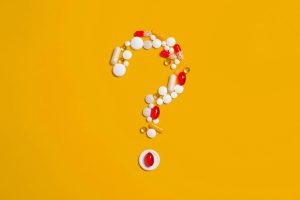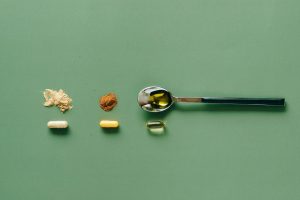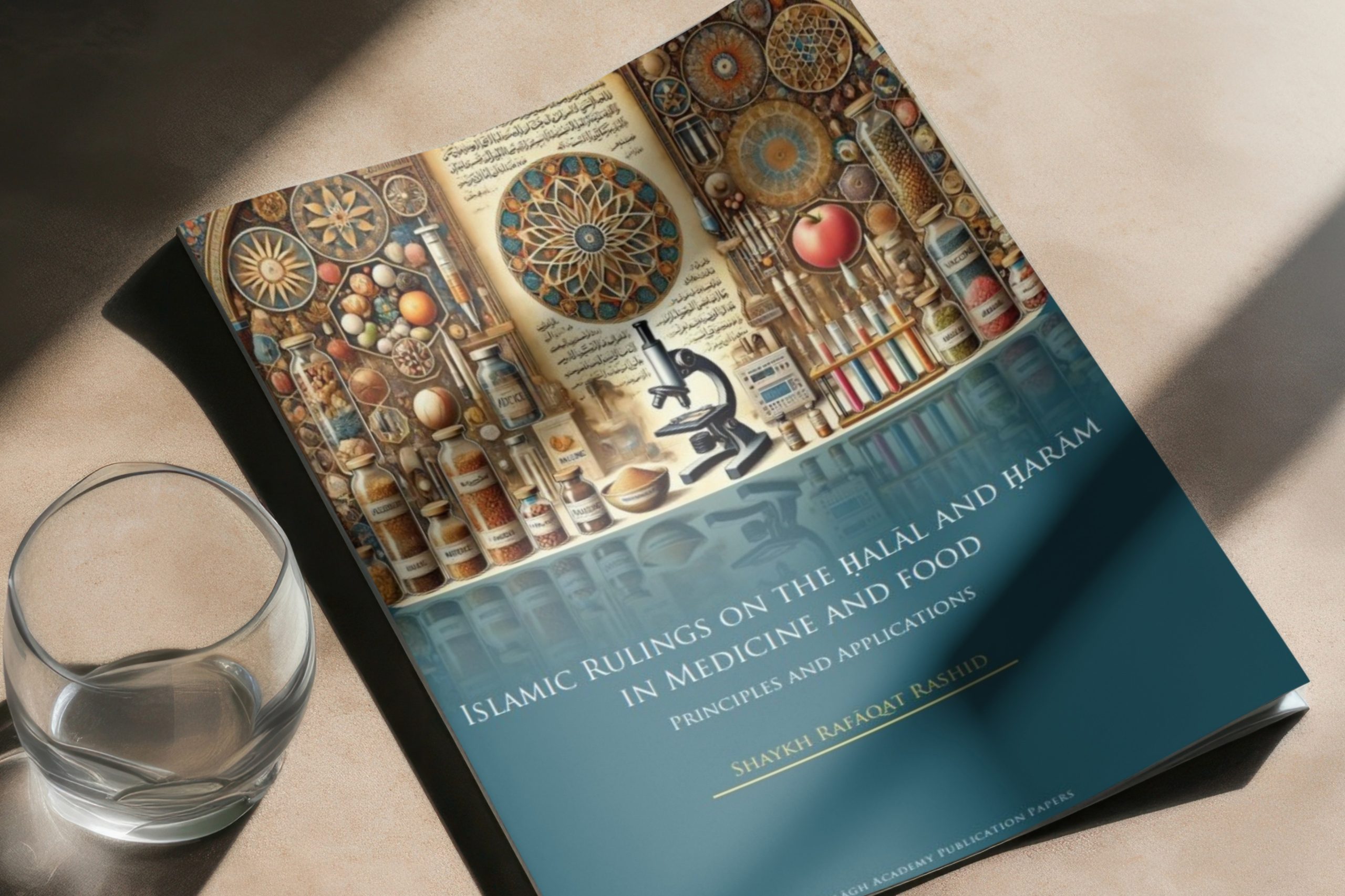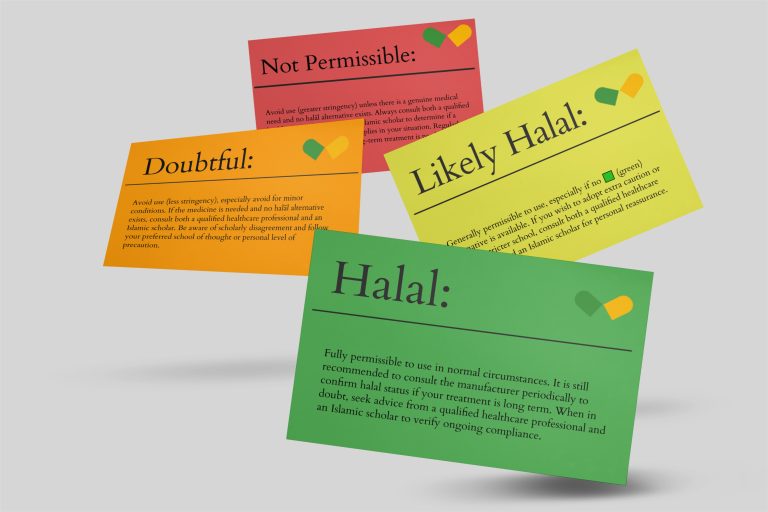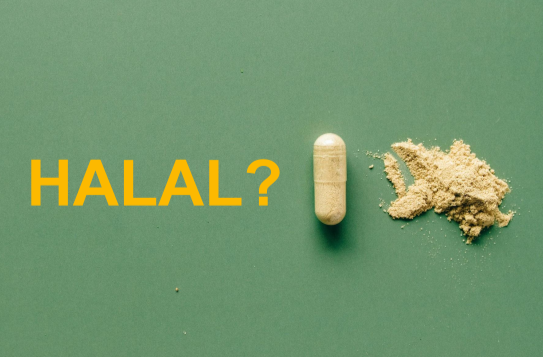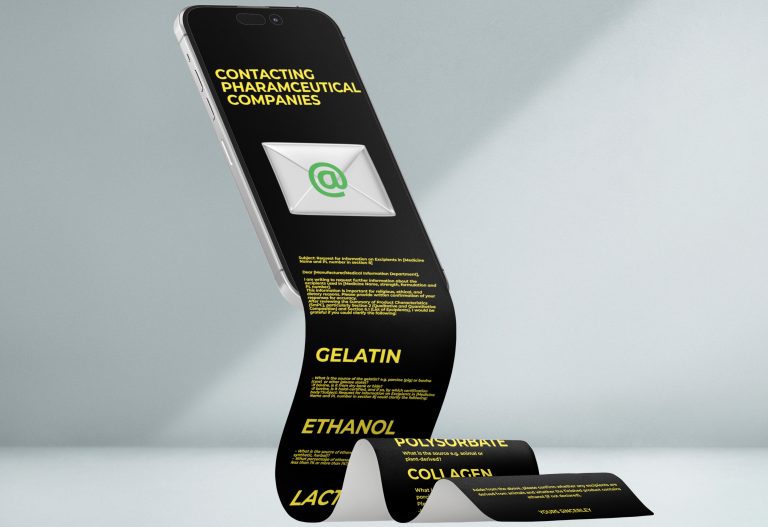Other synthetic alcohols used in medicines
This resource can help you understand how other common synthetic alcohols are used in medicines, and whether its use in medicines is halal (permissible) or haram (prohibited) in Islam.
There is a table (listed in alphabetical order) to help you understand the common synthetic alcohols used in medicines, their purpose and if they are halal or haram (including the reasoning) for people following a halal diet.
For information about ethanol use in medicines, see our separate guide on Ethanol in medicines.
The excipients listed in the table below are generally considered permissible for halal diet due to their synthetic or plant-based origins and absence of animal-derived components.
| Excipient name | Purpose | Permissibility status |
|---|---|---|
| Benzyl alcohol | Used as a solubilising agent as well as a preservative in injectables and oral liquids.(1) | ✅ Halal Synthetic or plant-derived, contains no ethanol, and non-intoxicating |
| Benzyl benzoate | Solvent in injectable as well as topical formulations. It is also used as a preservative in medications. (2) | ✅ Halal Not an alcohol, contains no ethanol |
| Butyl alcohol (butanol) | Solvent in injectables and oral liquids. It can be used in trace amounts as a flavouring agent or as a preservative. (2) | ✅ Halal Synthetic, contains no ethanol, and non-intoxicating |
| Cetostearyl alcohol | Stabilizer in oral tablets. In lotions, it can be used as an emulsifying agent or thickening agent.(2)(3) | ✅ Halal Plant-derived or synthetic, contains no ethanol, and non-intoxicating |
| Dehydrated alcohol | Solvent and preservative in injectables and oral tinctures. It is also used as a processing aid in the film coating process for tablets and capsules.(2)(3) | ❌ Difference of opinion whether halal or haram; read section on ethanol Contains ethanol and is intoxicating if ingested |
| Ethyl hydroxybenzoate | Preservative in topical treatments, injectables and oral liquids to inhibit microbial growth. (2) | ✅ Halal Despite its name, not an alcohol, contains no ethanol |
| Industrial ethylated spirits (denatured alcohol) | Ethanol-based solvent used in pharmaceutical manufacturing. It is toxic to humans so is not used in formulations. (2) | ❌ Difference of opinion whether halal or haram; read section on ethanol Contains ethanol and is intoxicating if ingested |
| Isopropyl alcohol | External antiseptic for skin disinfection and solvent. It is considered toxic so is not used in oral or injectables. (2)(3) | ✅ Halal (External use) Synthetic, non-intoxicating, and used externally |
| Methyl-parahydroxybenzoate (methylparaben) | Preservative in injectables, oral liquids topical treatments and ophthalmic formulations to inhibit microbial growth. (2)(3) | ✅ Halal Not classified as an alcohol, contains no ethanol |
| Parahydroxybenzoate (parabens) | General-purpose preservative in injectables, oral liquids, topical and ophthalmic formulations. (2)(3) | ✅ Halal Not an alcohol, contains no ethanol |
| Phenylethyl alcohol | Preservative and antimicrobial agent in injectables, oral liquids and topical creams. It can also be used as a solvent in nasal and ophthalmic formulations. (2)(3) | ✅ Halal Synthetic, contains no ethanol, and non-intoxicating |
| Polyvinyl alcohol | Film-forming agent and binder in oral tablets for stability and controlled release. It can be used to increase viscosity in ophthalmic formulations and can act as an emulsifying agent to prevent emulsions separating. (2)(3) | ✅ Halal Synthetic, contains no ethanol, and non-intoxicating |
| Propyl hydroxybenzoate (propylparaben) | Preservative in injectables, oral liquids, ophthalmic and topical formulations to inhibit microbial growth (2)(3) | ✅ Halal Not an alcohol, contains no ethanol |
| Propyl-parahydroxybenzoate | Preservative in injectables, oral liquids, ophthalmic and topical formulations to inhibit microbial growth (2)(3) | ✅ Halal Not an alcohol, contains no ethanol |
| Sodium benzoate | Preservative, injectables and oral liquids, topical and ophthalmic formulations to inhibit microbial growth (2)(3) | ✅ Halal Typically synthetic, contains no ethanol, and non-intoxicating |
If you are unsure about taking or using medicines containing ingredients and/or excipients from haram sources, seek guidance from a practising Muslim HCP such as a pharmacist or doctor. Alternatively, consult your local Imam or a trusted Islamic scholar, ideally one who has knowledge and expertise in the fiqh (Islamic rulings) of medicine.
FAQs
Did you know?
Even if a medicine contains an ingredient/excipient from a haram source, it may still be permitted in certain cases. Here are three Islamic maxims (principles):
- Medical need or necessity (hajah and darurah): Under this principle, if there is a medical necessity, such as an emergency situation, or where there is a strong chance the individual’s health will deteriorate, and if no viable halal alternative is available, then it is permitted to take a medicine containing ingredients/excipients derived from haram sources, until a viable halal alternative becomes available.
- An impermissible medicine becomes permissible if five conditions are fully met (click here to learn what the five conditions are).
- Hardship begets facility (al-mashaqqa tajlib at-taysir): Under this principle, if applying religious practice becomes too burdensome or creates hardship, then leniency can be applied to ease it (Click here to read more). If you have tried your best to seek an alternative halal medicine and it becomes too difficult for you, this principle allows you to take/use the medicine you have been prescribed/supplied.
⚠️ Important information for patients
- Always take or use your medicine(s) exactly as directed or prescribed by your healthcare professional (HCP), such as your doctor or pharmacist
- Do not stop, delay, change or alter the way you take or use your medicine(s) without first discussing it with the HCP who prescribed or supplied it to you
- Always consult your HCP if you have any questions or before making any decisions about your treatment
- For Islamic guidance, seek advice from your local Imam or a trusted Islamic scholar – ideally someone with relevant knowledge and expertise in the fiqh (Islamic rulings) of medicines
- Use the information gathered to make an informed decision together with your HCP and, if needed, your local Imam or trusted Islamic scholar
Disclaimer
- This resource is for educational purposes only. It does not constitute clinical, medical, or professional healthcare advice and should not replace individual clinical judgement or qualified religious guidance
- Always consult your doctor, pharmacist, or other healthcare professional regarding your own medical conditions or for advice on treatment options
- Healthcare professionals remain fully responsible and accountable for decisions made within their own scope of practice.
References and further reading
- European Medicines Agency. (n.d.). Benzyl alcohol. European Medicines Agency. https://www.ema.europa.eu/en/benzyl-alcohol
- Rowe, R. C., Sheskey, P. J., & Quinn, M. E. (Eds.). (2009). Handbook of pharmaceutical excipients (6th ed.). Pharmaceutical Press.
- Allen, L. V., Popovich, N. G., & Ansel, H. C. (2013). Ansel’s pharmaceutical dosage forms and drug delivery systems (10th ed.). Lippincott Williams & Wilkins.


